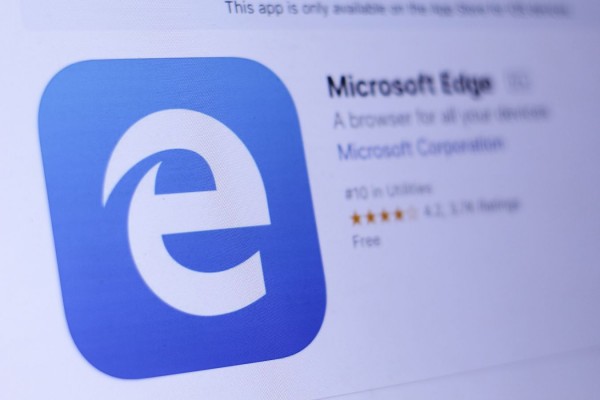Microsoft Guts Edge, Adds Chromium to Save Failing Browser
To the 7 people who use Microsoft Edge exclusively, I've got some good news for you. Microsoft has confirmed rumors it will be dropping the proprietary rendering engine at the core of its desktop web browser, and replacing it with a Chromium-compatible engine. A preview build is coming in early 2019.
Why is this good news? This is all about extensions. Right now, Edge's set of browser extensions is limited, leaving users no compelling reason to switch from Chrome, which is powered by the open-source Chromium. (The mobile versions of Edge already use other rendering engines -- Chromium on Android and WebKit on iOS.)
Once this transition happens, Chrome extensions and applications will run on Edge without much or any tweaking, so developers will have an easier time porting content over to Edge.
In a blog post, Microsoft Corporate VP of Windows Joe Belfiore confirmed the early rumors of this decision, and said Microsoft intends "to become a significant contributor to the Chromium project, in a way that can make not just Microsoft Edge — but other browsers as well — better on both PCs and other devices."
This is positioned as a win for all. It will help Edge survive but will also give Microsoft more influence in the further development of Chromium.
Belfiore also notes that this change means "Edge will now be delivered and updated for all supported versions of Windows and on a more frequent cadence."
This implies that the browser will be updated independently and will no longer be tied to major Windows system updates.
Sign up to receive The Snapshot, a free special dispatch from Laptop Mag, in your inbox.
While Belfiore says this project will "enable [Microsoft] to bring Microsoft Edge to other platforms like macOS," the above statement about "all supported versions of Windows" also suggests that Edge will be ported to Windows 7 and Windows 8.1. (Official extended support for Windows 7 lasts until January 2020.)
Underneath the change: a fight for the future
With this announcement, Microsoft is declaring EdgeHTML, the rendering engine and web development platform underpinning Edge, to be a failed project. That's an inarguable truth as Chromium, which powers the Chrome browser and Chrome OS, has grown to be a whole platform, as the browser and Chromebooks have sat at the front of the pack.
And as the pseudonymous security expert SwiftOnSecurity notes, this news is especially tied to Electron, a development tool for creating desktop applications. Electron works better with Chromium than it does with Edge. Microsoft didn't want to be left out in the cold in the same way it was left behind in smartphones, so it is making this move to become an active participant in Chromium.
Popular examples of Electron-based desktop applications include Slack, Spotify, WhatsApp and Amazon Alexa, as well as Microsoft's own Skype.
Image credit: FOOTAGE VECTOR PHOTO/Shutterstock
Henry was a contributing writer at Laptop Mag. He penned hundreds of articles, including helpful how-tos for Windows, Mac, and Gmail. Henry has also written about some of the best Chromebooks, and he has reviewed many Apple devices, including various MacBook Air laptops. He is now a managing editor at our sister site Tom's Guide, covering streaming media, laptops, and all things Apple.

